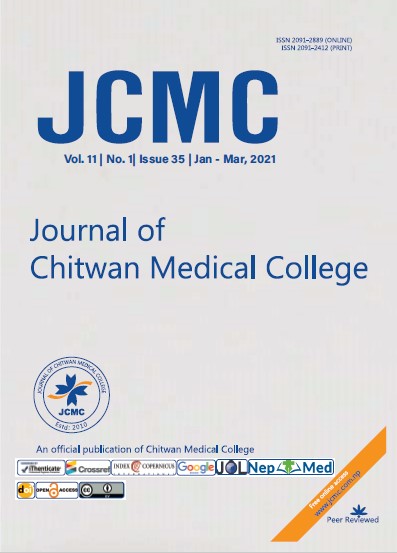Perception of equivalence of online classes to face to face classes among dental and medical undergraduate students of Gandaki Medical College, Nepal
Keywords:
Equivalence; Face to face learning; on¬line learning; Students’ Perception.Abstract
Background: Online learning has become a common mode of delivering education in Covid-19 era and our institute is not an exception. The objective of this study was to examine the perception of our students regarding the equivalence of online and face to face learning.
Methods: This questionnaire based online study was conducted at Gandaki Medical College, Pokhara among all the medical and dental undergraduate students with a sample size calculated as 180. The students’ perception in terms of general equivalence, flexibility, level of interaction, knowledge gained, and ease of online courses were collected. The data was entered in SPSS 20 and descriptive statistics was performed. The correlation between the variables was done using Spearman’s correlation analysis.
Results: The total participants in this study were 187. Online learning wasn’t perceived to be equivalent to face-to-face learning in general (2.82±1.10). Online class was perceived to be more flexible (4.49± 1.10), to provide less opportunity to interact with instructor and peers (3.17±1.13), and to gain less knowledge (3.36± 1.27). However, both were perceived to be relatively similar in terms of ease (3.79±0.8). The comparatively less interaction was correlated to less knowledge gained through online classes (r value = 0.67, P<0.01).
Conclusions: The result of this study suggests that the students didn’t find the online learning to be equivalent to face-to-face learning and the online learning experience can be correlated with interactive sessions.




